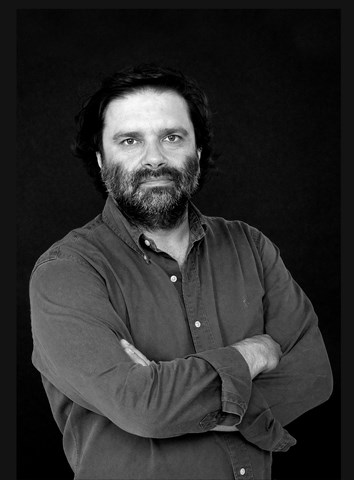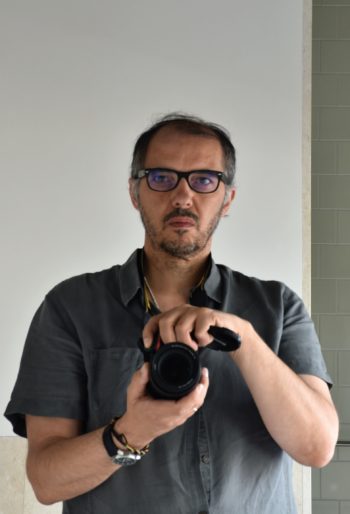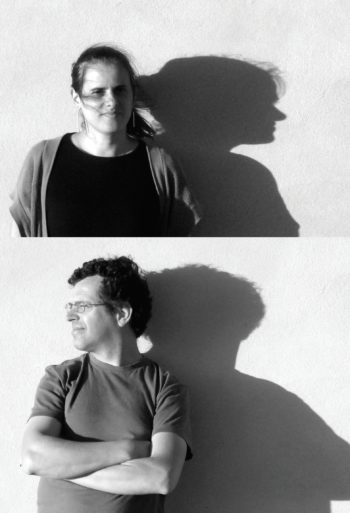A conversation with Arch. João Luís Ferreira

A conversation with Arch. João Luís Ferreira
‘Architecture is the victory of space over time. (...) It is the opposite of fashion. (...) It is what is not a passenger. (...) Architecture is the mirror of society’.
You founded Promontório studio with four classmates. What do you value the most in this partnership?
The fact that we started, the five of us, from a very young age, made architecture always overlap each other’s personality, and this allows for less personal and more disciplinary reflection. There are other aspects, of practical nature, that are also very important and advantageous, such as complementarity and mutual assistance, but what I think is most interesting and relevant in this partnership is the idea that the work results from the debate and the meeting of experiences. We were colleagues in college, we started careers together, and what was more personal faded a little. The projects are done individually but all the discourse around the project and the production of the work are done in a kind of proximity regime, which dilutes the more personal and less disciplinary aspects. There is an affinity between everyone, we are obliged to reflect, and what results from our work is what we see ourselves as a group.
Fluviário de Mora was a candidate for the Mies Van der Rohe Prize, one of the most prestigious in Europe. How did you view this event?
I think it was good but I think the prizes are a “double-edged sword”. They have the recognition factor, but they also produce a deification of people, which can even dismiss them from continuing to have the qualities that led them to win a certain prize. Prizes may have non-meritocratic factors associated with them. If there are 50 people and one of them wins a prize, that person is not necessarily better than the others. That person had, at a certain moment, a reason for recognition. There is a wrong tendency, from public opinion, to discredit those who have not won a prize. It seems that those who do not receive prizes have less authority. The prizes turn out to be a manipulation of the reality. It is good to receive prizes, or to be nominated, because it is a recognition. What is wrong is that we have no authority because we have not won a prize. A prize must be a ‘plus’, not what marks the continuity of the work. It is an exceptional thing that results from a certain moment. We can win a prize and never win any other again, and we are not worse for it. It is not normal for us to only do exceptional things. But there are people who, after winning prizes, seem to only do exceptional things, which they don’t, they do an exceptional thing and then do normal things, like everyone else.
Architecture marks the era in which it is inserted. Do you have contemporary architect mannerisms?
I think not. As architects, we don’t have to be architectural historians. We think and interpret with the knowledge we have. We can be more aware of our time or other times, depending on what we’ve studied. We can have a more historicist view or a fascination for a particular era. All of this influences our work. There is always a contemporary component, but contemporaneity is what people do at the same time. And there is no single truth at each time, there are many trends, many ways of interpreting reality. What may be characteristic of a particular era is more concerned with questions of principle than with things themselves. For example, there are immense movements of modernism: some are anti historicists, others recover popular architecture but refuse classical. There is no architectural language in modernism. I do it because I want to and I can do it, I don’t have to justify it. The reason that is at the origin of contemporaneity is a reason that has to do with the will. In contemporary times, knowledge is dispersed, there is no unity of knowledge, as in classical knowledge. Being contemporary can be doing modern, post-modern or futuristic things… In modernity, people do not think according to the same principles, they all manifest themselves differently, it seems that we are all of spontaneous generation.
What are art and architecture for you?
Art is a complex thing. As a definition of art, I usually use a poem by Teixeira de Pascoais, called ‘O Poeta’ [the Poet], where he defines the poet but I extrapolate to art in general. The poem says: ‘The poet is the one who rises to the heights of life and then goes back down here to tell others what he saw’. I think art is the vision of something, that some are lucky or have the merit of seeing, and manage to make a synthesis that others can understand. Architecture is the victory of space over time. We build a building and it remains. Even if it is destroyed, the memory remains and that is a way for time not to pass. The buildings age but the fact that we can go to a city, 30 or 40 years later, and see some things almost the same, shows the immortalization of architecture. The architecture started with the construction of tapirs, the Paleolithic tombs, a kind of places for the dead to live, because people believed in the immortality of the soul. The principle of architecture is this kind of liberation from time. And this is what I find most interesting about architecture. This idea that by creating a building, which characterizes the place, we are winning time. I would say that architecture is the opposite of fashion. While fashion lasts six months, architecture can last 30 centuries. Architecture is what is not temporary, it is what is established as definitive and must be thought of as a definitive thing. It is different from other arts: music may not be heard, poetry may not be read, theater may not be seen, but architecture is inseparable from our existence. We are forced to live with her. Architecture is the mirror of society.
This interview is an integral part of Revista Artes & Letras # 27, of January 2012
Partially automatic translation from portuguese: some expressions may differ from their actual meaning.
News & Interviews
A conversation with Arch. Paulo Tormenta Pinto
‘We are concerned with the‘ invariables’ of architecture, a search for solutions without time that lead us to a more anonymous role, without that meaning loss of disciplinary scholarship’ Read more
A conversation with Aboim Inglez Architects
'We were asked to recover a house with unfinished walls and part of the roof built with metal sheets, with a limited budget. The client did not have the prejudice of thinking "I am not going to call an architect here". She felt that she had that right ' Read more
New bridge inaugurated in Mozambique
Betar has contributed to the success of the project, which is vital for the transportation of people and goods. Read more




